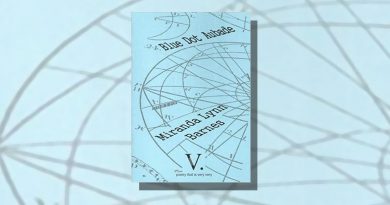A Skyful of Kites by Jessamine O’Connor
– Reviewed by Emma Lee –
Jessamine O’Connor uses the poems in A Skyful of Kites to express anger, particularly at the failure and impotence of politics at home and abroad, both historically and in the present. However, these poems are not rants or directionless venting. In ‘Original Sin’, targeted at the uncovering of mass graves in Catholic-run mother and baby homes, there’s a note of satire:
God knows we fanatically love children
before they’re born.Then when all the unplanned impossible births
come to us for sanctuaryWe make something out of them
We make money or make work.Some of those babies made a good price abroad
and the country was never short of clean sheets.Look on it as national crash crop
that we let the women water with tears.It’s abortionists that are the real criminals
for taking the food out of our mouths.
It becomes a thought-provoking polemic, rather than yet another polarising treatise on reproductive rights; a way of saying ‘this is wrong’ without telling readers which way to vote. Jessamine O’Connor respects and gives space for her readers to think. A similar approach is taken in ‘Plant Reproductive Material Law’, about a bioengineering company’s attempts to patent plant genes:
And when the seeds blow you’d better beware.
The bioengineering armies of lawyers
will frogmarch you off into years of litigation,
leaching every last bit of life from your soil,
because the judge will always agree with them;Of course it will be you, who had stolen their seed,
you – we – who must pay
for their airborne pestilence,
their mutated robo-crops,
their contagious sterility.
This one I think it less successful: the anger is still too raw to be completely forged into poetry. I like the assonances and spaced alliteration in the first stanza quoted, but this gets lost in the following stanza.
In ‘Ten So Far This Morning’ (Gaza, November 2012), O’Connor uses a compare and contrast approach to get her message across, using the title as a refrain to underscore her point:
I let the porridge glue,
and start forcing tiny trousers
onto reluctant legs,
living, pink thrashing legs,
snapping –
why can’t you just behave? –
as they go scampering awayTen so far this morning.
Boys crouched under shields
made of their own front doors,
hiding from the sky
behind doors just like mine
still flapping
with letterboxes,
the childhood in their eyes.
Her strength lies in her ability to be passionate about a situation, while structuring that passion into a poem that doesn’t dictate the reader’s reaction or hammer the poet’s viewpoint home.
There are some light hearted moments, and the title poem, another about Gaza, carries a hopeful image of kites fluttering like dreams, necessary colour in bleak circumstances. The poems work even if the reader takes an opposing viewpoint, the mark of a skilled politician: one whom you will listen to even if you don’t support their ideology, because they are a persuasive orator who appreciates what the flexibility and power of language can achieve, one who knows that a well crafted speech doesn’t need to be shouted. The quiet voice of experience and empathy will resonate far longer, and Jessamine O’Connor shows that she understands that.





